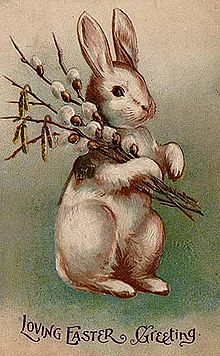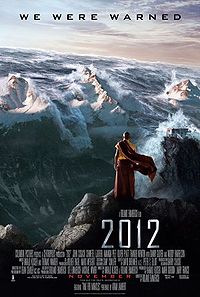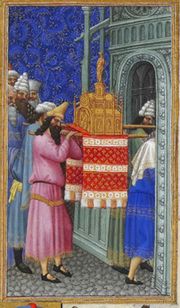
COGwriter
This time of year, those faithful in the Churches of God have been following Paul’s admonition to examine themselves prior to the start of the Passover and other Spring Holy Days (1 Corinthians 11:27-32).
Jesus, of course, kept the Passover and told His followers to follow practices He associated with it:
14 When the hour had come, He sat down, and the twelve apostles with Him. 15 Then He said to them, “With fervent desire I have desired to eat this Passover with you before I suffer; 16 for I say to you, I will no longer eat of it until it is fulfilled in the kingdom of God.”
17 Then He took the cup, and gave thanks, and said, “Take this and divide it among yourselves; 18 for I say to you, I will not drink of the fruit of the vine until the kingdom of God comes.”
19 And He took bread, gave thanks and broke it, and gave it to them, saying, “This is My body which is given for you; do this in remembrance of Me.” (Luke 22:14-19)
While most people realize that Jesus observed what many consider to be “Jewish” Holy Days, most have apparently not realized that the observance of these days was the practice of nearly all of those who professed Christ in the first few centuries of Christianity.
The first century Christians observed the all holy days listed in Leviticus Chapter 23. Specifically the New Testament shows that they observed the Passover and Days of Unleavened Bread (1 Corinthians 5:7-8), Pentecost (Acts 2:10;20:16; 1 Corinthians 16:8), the Day of Atonement (called the Fast, Acts 27:9) and the Feast of Tabernacles (called the Feast, Acts 18:21). And that the fulfillment’s of the Feast of Trumpets is also described in the New Testament (1 Thessalonians 4:15-18; Revelation 8-11).
Catholic and other scholars realize that these practices were continued as well.
For example, The Catholic Encyclopedia states this about Passover:
The connection between the Jewish Passover and the Christian feast of Easter is real and ideal. Real, since Christ died on the first Jewish Easter Day; ideal, like the relation between type and reality, because Christ’s death and Resurrection had its figures and types in the Old Law, particularly in the paschal lamb, which was eaten towards evening of the 14th of Nisan. In fact, the Jewish feast was taken over into the Christian Easter celebration…The connection between the Jewish and the Christian Pasch explains the movable character of this feast…Since Christ, the true Paschal Lamb, had been slain on the very day when the Jews, in celebration of their Passover, immolated the figurative lamb, the Jewish Christians in the Orient followed the Jewish method, and commemorated the death of Christ on the 15th of Nisan and His Resurrection on the 17th of Nisan, no matter on what day of the week they fell. For this observance they claimed the authority of St. John and St. Philip (Holwek F. G. Transcribed by John Wagner and Michael T. Barrett. Easter. The Catholic Encyclopedia, Volume V. Copyright © 1909 by Robert Appleton Company. Online Edition Copyright © 2003 by Kevin Knight. Nihil Obstat, May 1, 1909. Remy Lafort, Censor. Imprimatur. +John M. Farley, Archbishop of New York).
Well, actually those in the true church in the Orient observed the 14th day of Nisan (see article on Polycrates or Apollinaris). However, the basic point is that the Catholic Church admits that Christ was slain on the Passover and that it still should be observed (even though they changed the name, intent, and the date–also the Jews never called it Easter).
For another example, The Catholic Encyclopedia states this about Pentecost:
Pentecost…A feast of the universal Church which commemorates the Descent of the Holy Ghost upon the Apostles, fifty days after the Resurrection of Christ, on the ancient Jewish festival called the “feast of weeks” or Pentecost (Exodus 34:22; Deuteronomy 16:10)…Pentecost (“Pfingsten” in German), is the Greek for “the fiftieth”…In Tertullian (De bapt., xix) the festival appears as already well established (Holweck F.G. Transcribed by Wm Stuart French, Jr. Pentecost (Whitsunday). The Catholic Encyclopedia, Volume XV. Copyright © 1912 by Robert Appleton Company. Online Edition Copyright © 2003 by Kevin Knight. Nihil Obstat, October 1, 1912. Remy Lafort, S.T.D., Censor. Imprimatur. +John Cardinal Farley, Archbishop of New York).
In the early third century, the Catholic theologian Origen listed the following as being celebrated:
If it be objected to us on this subject that we ourselves are accustomed to observe certain days, as for example… the Passover, or Pentecost…(Origen. Contra Celsus, Book VIII, Chapter XXII. Excerpted from Ante-Nicene Fathers, Volume 4. Edited by Alexander Roberts & James Donaldson. American Edition, 1885. Online Edition Copyright © 2005 by K. Knight).
It is likely that other days were also then celebrated. While Origen listed what would be considered to be the Spring Holy Days, some were still keeping those known as the Fall Holy Days.
Notice what a respected Protestant scholar reported about the second century:
The most important in this festival was the passover day, the 14th of Nisan…In it they ate unleavened bread, probably like the Jews, eight days through…there is no trace of a yearly festival of the resurrection among them…the Christians of Asia Minor appealed in favor of their passover solemnity on the 14th Nisan to John (Gieseler, Johann Karl Ludwig. A Text-book of Church History. Translated by Samuel Davidson, John Winstanley Hull, Mary A. Robinson. Harper & brothers, 1857, Original from the University of Michigan, Digitized Feb 17, 2006, p. 166).
So, like the Apostle John (the last of the original apostles to die), the early faithful Christians observed Passover and the Days of Unleavened Bread.
The early Church clearly kept the what are now known as Jewish Holy Days and saw Christian fulfillment’s in them (especially the Spring ones). And since the Apostles observed them in the New Testament, shouldn’t they and not Christmas be celebrated by true followers of Christ. Gradually, those under Catholic influence stopped celebrating the Fall Holy Days.
A book called The Life of Polycarp contains some possibly helpful information about Polycarp. Polycarp is considered to have been a saint by the Church of Rome, the Eastern Orthodox, and the Living Church of God.
For example, it specifically mentions the Sabbath, Passover, the Days of Unleavened Bread, Pentecost, and the Last Great Day of the Feast of Tabernacles. And it endorses keeping them:
In the days of unleavened bread Paul, coming down from Galatia, arrived in Asia, considering the repose among the faithful in Smyrna to be a great refreshment in Christ Jesus after his severe toil, and intending afterwards to depart to Jerusalem. So in Smyrna he went to visit Strataeas, who had been his hearer in Pamphylia, being a son of Eunice the daughter of Lois. These are they of whom he makes mention when writing to Timothy, saying; Of the unfeigned faith that is in thee, which dwelt first in thy grandmother Lois and in thy mother Eunice; whence we find that Strataeas was a brother of Timothy. Paul then, entering his house and gathering together the faithful there, speaks to them concerning the Passover and the Pentecost, reminding them of the New Covenant of the offering of bread and the cup; how that they ought most assuredly to celebrate it during the days of unleavened bread, but to hold fast the new mystery of the Passion and Resurrection. For here the Apostle plainly teaches that we ought neither to keep it outside the season of unleavened bread, as the heretics do, especially the Phrygians…but named the days of unleavened bread, the Passover, and the Pentecost, thus ratifying the Gospel (Pionius. Life of Polycarp, Chapter 2. Translated by J. B. Lightfoot, The Apostolic Fathers, vol. 3.2, 1889, pp.488-506).
What must one say, when even He that was gentler than all men so appeals and cries out at the feast of Tabernacles? For it is written; And on the last day, the great day of the feast, Jesus stood and cried saying, If any man thirsteth, let him come to Me and drink (Chapter 19).
And on the sabbath, when prayer had been made long time on bended knee, he, as was his custom, got up to read; and every eye was fixed upon him. Now the lesson was the Epistles of Paul to Timothy and to Titus, in which he says what manner of man a bishop ought to be. And he was so well fitted for the office that the hearers said one to another that he lacked none of those qualities which Paul requires in one who has the care of a church. When then, after the reading and the instruction of the bishops and the discourses of the presbyters, the deacons were sent to the laity to enquire whom they would have, they said with one accord, ‘Let Polycarp be our pastor and teacher’ (Chapter 22).
And on the following sabbath he said; ‘Hear ye my exhortation, beloved children of God…’ (Chapter 24).
Hence there is an ancient document that claims that Polycarp did keep the Sabbath and the Holy Days (of course, other ancient documents, as shown in this article, support this). And there would have been no reason for Greco-Roman supporters in the 4th century to change the document to indicate that he did so, hence The Life of Polycarp does claim that Polycarp kept the Sabbath and the Holy Days.
Polycrates, who was bishop of Ephesus, wrote the following around 195 A.D.:
We observe the exact day; neither adding, nor taking away. For in Asia also great lights have fallen asleep, which shall rise again on the day of the Lord’s coming, when he shall come with glory from heaven, and shall seek out all the saints. Among these are Philip, one of the twelve apostles, who fell asleep in Hierapolis; and his two aged virgin daughters, and another daughter, who lived in the Holy Spirit and now rests at Ephesus; and, moreover, John, who was both a witness and a teacher, who reclined upon the bosom of the Lord, and, being a priest, wore the sacerdotal plate. He fell asleep at Ephesus. And Polycarp in Smyrna, who was a bishop and martyr; and Thraseas, bishop and martyr from Eumenia, who fell asleep in Smyrna. Why need I mention the bishop and martyr Sagaris who fell asleep in Laodicea, or the blessed Papirius, or Melito, the Eunuch who lived altogether in the Holy Spirit, and who lies in Sardis, awaiting the episcopate from heaven, when he shall rise from the dead ? All these observed the fourteenth day of the passover according to the Gospel, deviating in no respect, but following the rule of faith. And I also, Polycrates, the least of you all, do according to the tradition of my relatives, some of whom I have closely followed. For seven of my relatives were bishops; and I am the eighth. And my relatives always observed the day when the people put away the leaven. I, therefore, brethren, who have lived sixty-five years in the Lord, and have met with the brethren throughout the world, and have gone through every Holy Scripture, am not affrighted by terrifying words. For those greater than I have said ‘ We ought to obey God rather than man’…I could mention the bishops who were present, whom I summoned at your desire; whose names, should I write them, would constitute a great multitude. And they, beholding my littleness, gave their consent to the letter, knowing that I did not bear my gray hairs in vain, but had always governed my life by the Lord Jesus (Eusebius. Church History. Book V, Chapter 24).
This shows that he and many people considered to be saints by the Greco-Roman churches observed Passover on the 14th. There is no doubt that the so-called “Jewish” Holy Days were still observed by the faithful Christians in Asia Minor and elsewhere for centuries after Christ did. Gentile leaders kept the Holy Days.
What was not observed, until probably the 4th century, even by the Roman Catholic and Eastern Orthodox churches, was Christmas. Birthdays were also not observed until about that time. Nor was a 40 day period called Lent, nor Valentine’s Day, nor many other days that many observe today.
In apparently the third century Apollinaris (who is generally considered to have been a bishop and saint) wrote,
There are, then, some who through ignorance raise disputes about these things (though their conduct is pardonable: for ignorance is no subject for blame — it rather needs further instruction), and say that on the fourteenth day the Lord ate the lamb with the disciples, and that on the great day of the feast of unleavened bread He Himself suffered; and they quote Matthew as speaking in accordance with their view. Wherefore their opinion is contrary to the law, and the Gospels seem to be at variance with them…The fourteenth day, the true Passover of the Lord; the great sacrifice, the Son of God instead of the lamb, who was bound, who bound the strong, and who was judged, though Judge of living and dead, and who was delivered into the hands of sinners to be crucified, who was lifted up on the horns of the unicorn, and who was pierced in His holy side, who poured forth from His side the two purifying elements, water and blood, word and spirit, and who was buried on the day of the passover, the stone being placed upon the tomb (Apollinaris. From the Book Concerning Passover. Translated by Alexander Roberts and James Donaldson. Excerpted from Volume I of The Ante-Nicene Fathers. Alexander Roberts and James Donaldson, editors; American Edition copyright © 1885. Copyright © 2001 Peter Kirby).
Apollinaris is showing then that the Passover is (Nisan 14) and that it signifies the sacrifice of Christ, both of which are the positions of the Churches of God.
There is no doubt that early Christians kept the Passover. Both the Bible and history show this. Furthermore, the fiathful hav tended to do this throughout history.
For example, Adventist researcher Daniel Liechty reported Sabbath-keepers in Transylvania in the 1500s and later kept the biblical Holy Days (such as the Feast of Trumpets called Day of Remembrance below) (and those are days his church does not observe):
The Sabbatarians viewed themselves as converted Gentiles.. They held to the biblical holidays. Passover they celebrated with unleavened bread…The first and last seventh day of Passover were full holidays…There is no mention of circumcision, so it is unlikely that they practiced circumcision (Liechty D. Sabbatarianism in the Sixteenth Century. Andrews University Press, Berrien Springs (MI), 1993, pp. 61-62).
The biblical Holy Days are still observed by faithful groups in the 21st century like the Living Church of God.
So, do you follow the practices of the early faithful Christians? Passover this year begins after sunset on the 5th of April.
Some articles to assist in your studies may include:
Is There “An Annual Worship Calendar” In the Bible? This paper provides a biblical and historical critique of several articles, including one by WCG which states that this should be a local decision. What do the Holy Days mean? Also you can click here for the calendar of Holy Days.
Hebrew Calendar This John Ogywn writing explains why we in the Living Church of God use the calendar that we do and answers such questions as “Did Jesus Observe the Postponements?”
Passover and the Early Church Did the early Christians observe Passover? What did Jesus and Paul teach? Why did Jesus die for our sins?
Melito’s Homily on the Passover This is one of the earliest Christian writings about the Passover. This also includes what Apollinaris wrote on the Passover as well.
TPM: Passover on the 14th or 15th? While the LCG observes Passover on the 14th, some observe it on the 15th. Why is the 14th correct?
The Night to Be Observed What is the night to be much observed? When is it? Why do Jews keep Passover twice and emphasize the wrong date?
Should Christians Keep the Days of Unleavened Bread? Do they have any use or meaning now? What is leaven? This article supplies some biblical answers.
Pentecost: Is it more than Acts 2? Many “Christians” somewhat observe Pentecost. Do they know what it means? It is also called the Feast of Harvest, the Feast of Weeks, and the day of firstfruits. What about “speaking in tongues”?
What Does the Catholic Church Teach About Christmas and the Holy Days? Do you know what the Catholic Church says were the original Christian holy days? Was Christmas among them?
Did Early Christians Celebrate Birthdays? Did biblical era Jews celebrate birthdays? Who originally celebrated birthdays? When did many that profess Christ begin birthday celebrations?
Holy Day Calendar This is a listing of the biblical holy days through 2017, with their Roman calendar dates. They are really hard to observe if you do not know when they occur 🙂
![]()









